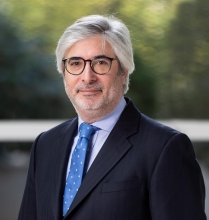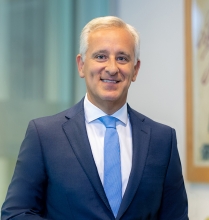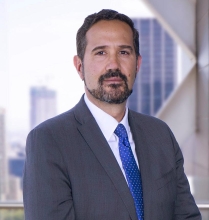International Arbitration Newsletter - September 2019 | Regional Overview: Middle East and Africa
Algeria
Spanish OHL files treaty claim against Algeria on railway project
Spanish construction group Obrascón Huarte Lain (OHL) is pursuing a €140 million arbitration against Algerian state railway investments agency Anesrif over a railway project that began 13 years ago.
The claim relates to a contract for the construction of the Annaba railway line. OHL was part of a consortium that was awarded a €248 million contract in 2006 to double-track a 95-kilometre railway line between Algeria’s northeastern seaport city of Annaba and the town of Ramdane Djamel. The Spanish company owned an 85% stake in the consortium, with the rest held by Algerian state-owned enterprise Infrafer.
The work was originally envisaged to be completed in 39 months but encountered repeated delays, with reports suggesting problems in expropriating the necessary land was a factor.
Nigeria
US court refuses to enforce award of ExxonMobil and Shell against Nigeria
The US District Court for the Southern District of New York US has refused to allow Exxon subsidiary Esso E&P and Shell Nigeria to enforce a US$2.7 billion award against the Nigerian National Petroleum Corporation (NNPC) that was set aside at the seat of arbitration in Nigeria.
The dispute relates to claims filed against the Nigerian state-owned company over valuable deepwater oil fields in the Niger Delta. The claims are all filed under similar production-sharing contracts signed in the early 1990s that provide for ad hoc arbitration seated in Abuja and governed by Nigeria’s Arbitration and Conciliation Act. The contract with Shell and Esso gave those companies, among other things, the exclusive right to estimate the tax payable on the oil it extracted. In 2008, Nigeria and NNPC began to rethink the terms of the agreement. In 2008, NNPC had refused to submit tax returns prepared by Esso to the Nigerian tax authority, instead submitting its own returns.
Esso and Shell filed the arbitration in 2009, objecting to the “overlifting” of oil from Erha. In the arbitration, the tribunal ordered NNPC to pay US$1.79 billion plus interest for oil it had overlifted. Later, the Federal High Court in Abuja upheld a petition by NNPC to set aside the award, finding that tax matters were not arbitrable under Nigerian law and that the arbitrators had exceeded their jurisdiction. The Nigerian Court of Appeal upheld the finding that the dispute related to taxation and was therefore not arbitrable under Nigerian law. However, the court also found the arbitrators were correct in determining that NNPC had breached the agreement by overlifting oil and failing to submit tax returns prepared by Esso; it said those portions of the award should be reinstated.
Morocco
ICSID tribunal formed to hear Treaty claim against Morocco filed by German scrap metal recycler
An ICSID tribunal has been constituted to hear a treaty claim worth €60 million brought by German scrap metal recycler Scholz Holding against Morocco under the Germany-Morocco bilateral investment treaty on an export ban.
The dispute relates to Scholz’s Moroccan subsidiary, Scholz Metall Marokko (SMM), which argues their operation was paralysed by blanket bans imposed by the Moroccan Ministry of Industry in 2012 and 2013 on the export of scrap metal to the EU – as well banning the import of a type of steel SMM processed at its plant.
It alleged that the measures were implemented at the behest of local competitors who viewed SMM as a threat. The company argues Morocco has violated several standards of the BIT, including the obligation to treat foreign investors no less favourably than domestic ones.
Saudi Arabia
US court dismisses applicationagainst Saudi Aramco to enforce a US$18 billion award
The US District Court for the Southern District of Texas court has dismissed an enforcement petition of a US$18 billion alleged “sham” award in favour of a group of Saudi and Egyptian claimants against Aramco Services Company (ASC), a US subsidiary of Saudi Aramco.
An enforcement petition by the same claimants is still pending against Chevron in the US District Court for the Northern District of California, where the company is incorporated.
The Saudi Arabian and Egyptian claimants- who include members of the Saudi royal family- filed both enforcement petitions seeking to collect on an award issued by the International Arbitration Centre (IAC) in Cairo- alleging they are heirs to a 1933 concession granted by their ancestors to a predecessor company of Chevron and Aramco, Standard Oil of California and said that they were owed some US$82 billion lost rent and oil revenue for land that should have been returned to them after 60 years.
Chevron insisted from the outset of the arbitration that the IAC was not a legitimate arbitral institution, arguing that the concession agreement (which it also says it was never party to) in any case provided for arbitration in The Hague rather than in Cairo.
Hochtief withdraws treaty claim against Saudi Arabia in airport expansion dispute
German construction company Hochtief has discontinued an ICSID claim against Saudi Arabia over the cancellation of a €1.3 billion contract to expand an international airport in Riyadh.
The claim was brought under the 1996 Germany-Saudi Arabia bilateral investment treaty and allegedly relates to a €1.3 billion project to redesign, upgrade and expand two terminals at King Khaled International Airport in Riyadh.
Hochtief held a 55% stake in the joint venture as lead contractor, partnering with two other construction companies, India’s Shapoorij Pallonji Mideast and Saudi-incorporated Nahdat Al Emaar.
Construction commenced in 2015 and was due to be completed in May 2019 as part of a €4 billion programme by the Saudi General Authority of Civil Aviation. Howevever, Hochtief reportedly alleged that the Saudi government cancelled the contract in 2016 and reassigned the project to a third party.
Sierra Leone
Sierra Leone hit by first-ever ICSID treaty claim
SL Mining, a subsidiary of a London-headquartered commodity trader Gerald Group, has served two notices of dispute under ICSID and ICC claims against Sierra Leone after the government banned exports from its iron ore mine.
The notices were filed under SL Mining’s licence agreement with the government, which is governed by Sierra Leonean law and provides for ICC arbitration; and the UK-Sierra Leone bilateral investment treaty, which provides for ICSID arbitration. Both the contract and treaty provide for a three-month waiting period after a notice of dispute is filed.
According to UNCTAD, the BIT is one of only two such treaties in force for Sierre Leone, which has never previously faced an ICSID claim.
The dispute relates to SL Mining´s licence agreement for the Marampa iron ore mine, located in northwestern Sierra Leone, and the government ban on exports from the mine, alleging the company had failed to keep up with its agreed work schedule and had not made royalty payments. Sierra Leone’s minister of mines subjected the lifting of the restriction on iron ore shipments to certain conditions, including the immediate payment of a US$1 million performance bond and the payment of royalties for three iron ore shipments made in June and July and advance payments for future shipments. SL Mining considers the export ban unlawful and that the ministry’s proposal amounted to extortion.
Tanzania
South African court arrests Tanzanian airplane in arbitration award enforcement
The Gauteng High Court in Johannesburg (South African) court has ordered the arrest of a plane belonging to the government of Tanzania at the request of a retired anonymous farmer who seeks to enforce an US$33 million award he obtained in 2010 against Tanzania over the expropriation of his land.
The dispute relates to the Tanzanian governments decisions to incarcerate the farmer for nine months in the 1980s and nationalise a massive privately owned bean and seed farm, seizing equipment, 250 cars and 12 small planes. The Tanzanian government later concluded an agreement with the farmer but it fell behind on its payments, leading the farmer to commence a domestic ad hoc arbitration under Tanzanian law, in accordance with an arbitration clause contained in that agreement
The farmer is seeking to enforce the award in South Africa as a foreign arbitral award under the country’s International Arbitration Act.
Contacts




-
+52 55 1102 3570
-
+57 601 326 69 99

-
+56 2 29419000



